Are you looking to renew your subcontractor agreement but don't know where to begin? Crafting a clear and concise letter for this purpose is essential to ensure that both parties are aligned on the terms and expectations. In this article, we'll guide you through the key elements to include, making the renewal process smooth and efficient. Let's dive in and explore how to effectively communicate your intentions in a subcontractor agreement renewal letter!

Parties involved
The renewal of the subcontractor agreement involves key parties including the primary contractor, identified as ABC Construction LLC, located in Springfield with federal tax identification number 12-3456789, and the subcontractor, recognized as XYZ Services Corp, based in Rivertown with federal tax identification number 98-7654321. The agreement pertains to ongoing construction projects, focusing on electrical installation services, which are critical for project completion by the deadline of December 31, 2023. Both parties are committed to maintaining quality standards and timely delivery as specified in the original agreement dated January 1, 2023, outlining compensation terms of $75 per hour for labor provided by subcontractor personnel. Compliance with local building codes and safety regulations, outlined by Springfield's Department of Buildings, remains essential during the contract renewal process.
Renewal terms and conditions
Renewal of subcontractor agreements involves revisiting critical terms and conditions that define the working relationship between the primary contractor and the subcontractor. These agreements typically outline the duration of service, compensation amounts (often specified as hourly rates or project totals), and the scope of work (detailing specific tasks or projects to be undertaken). Additional elements include performance metrics, requiring regular evaluations on quality and timeliness of deliverables. Confidentiality clauses protect proprietary information shared during the contract period, while liability limitations specify responsibilities in case of project-related accidents or damages. Furthermore, payment terms detail invoicing schedules and acceptable payment methods. Modifications or amendments to the original agreement may be considered based on project needs or changing circumstances. Regular renewal periods may be established (e.g., annually) to ensure that both parties reassess their continuing commitment.
Payment details and schedule
The payment terms for subcontractor agreements typically outline specific monetary amounts, deadlines, and methods of payment. It is essential to define the total contract value, which is the sum of all services performed by the subcontractor, as agreed upon after negotiation. Payment schedules may include milestones, such as 30% upfront upon signing the renewal agreement, followed by payments of 40% upon completion of interim phases, and the final 30% upon successful project completion. Noteworthy, payment methods can encompass bank transfers, checks, or electronic payment systems, ensuring prompt and secure financial transactions. Additionally, including provisions for late payments, such as interest charges of 1.5% per month for overdue invoices, can protect both parties in case of financial discrepancies. Documenting these terms clearly fosters transparency and trust throughout the subcontractor relationship.
Scope of work and responsibilities
The scope of work and responsibilities outline the specific tasks that subcontractors must complete under the agreement. This may include detailed specifications for construction projects, such as electrical installations, plumbing work, or building modifications. Each subcontractor is expected to deliver quality workmanship in compliance with local building codes and industry standards. Timelines for each phase, including project milestones and final completion dates, are crucial for ensuring smooth operations. Regular communication with the main contractor is essential for addressing any issues that arise during the project. Additionally, adherence to safety protocols is mandatory to prevent workplace incidents and ensure the well-being of all personnel on site.
Termination clause and provisions
A subcontractor agreement renewal typically includes a termination clause that outlines the conditions under which either party may end the agreement. Key elements of this clause may encompass notice periods, reasons for termination such as breach of contract or failure to perform, and obligations for subcontractors to complete pending work or transfer materials. Provisions may detail potential consequences of early termination, including final payments and the return of proprietary materials. It is advisable to specify a termination procedure, including written notice requirements and timelines, to ensure clarity. Clear definitions for "cause" and "default" are essential, protecting both parties should disagreements arise.

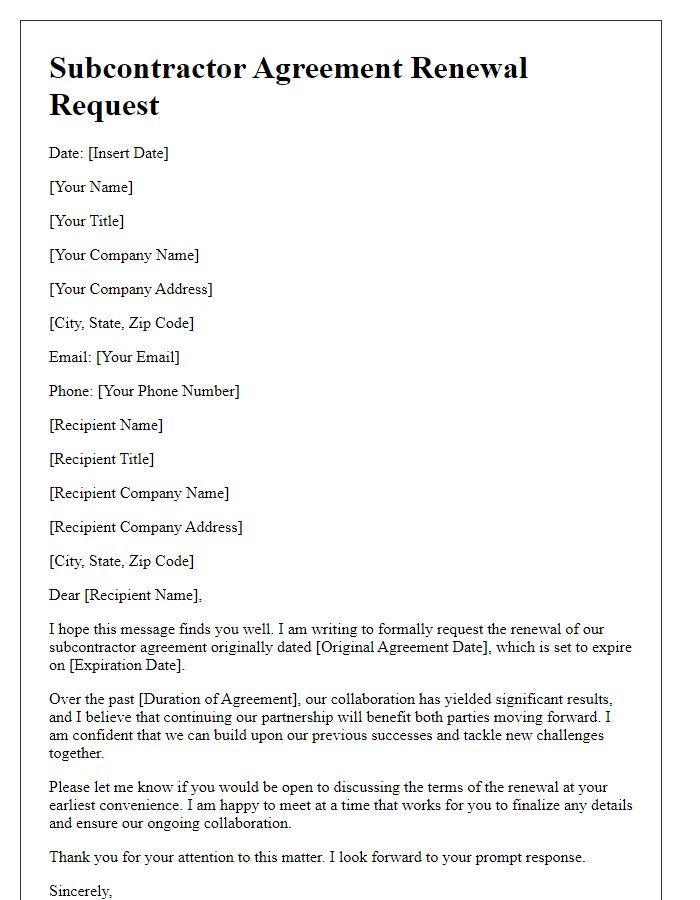
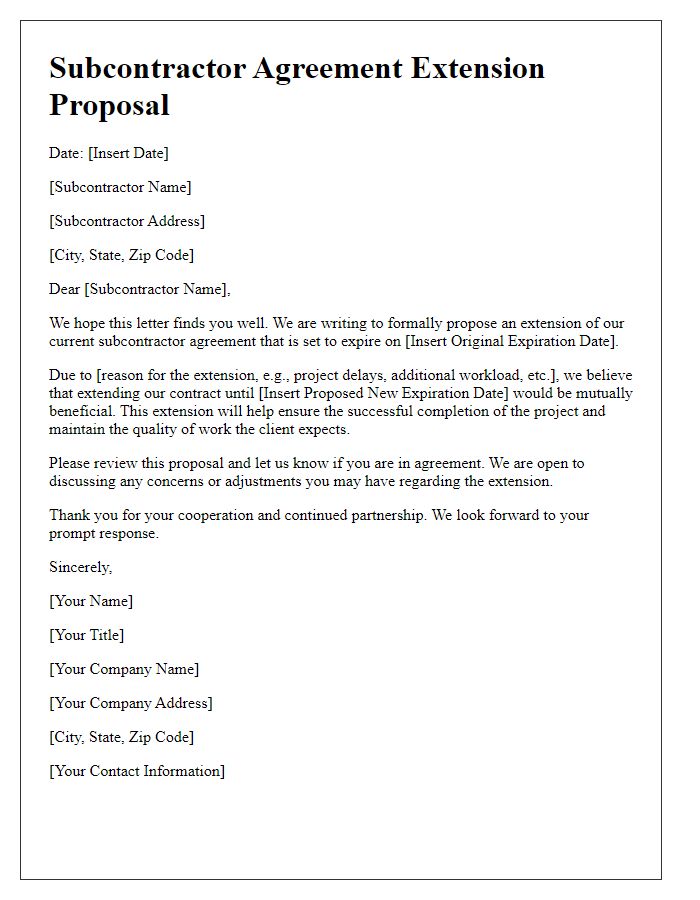
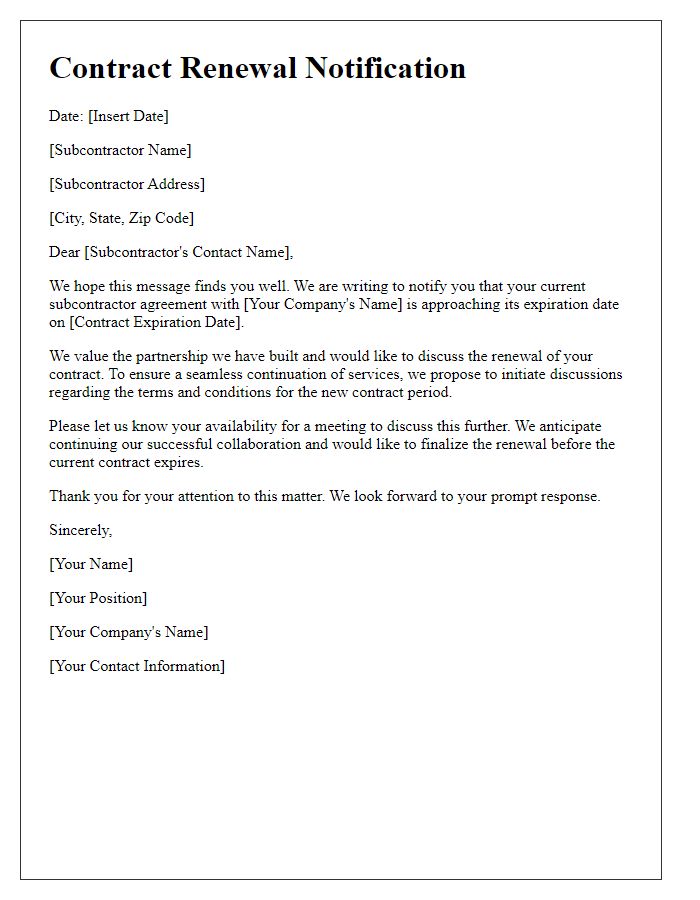
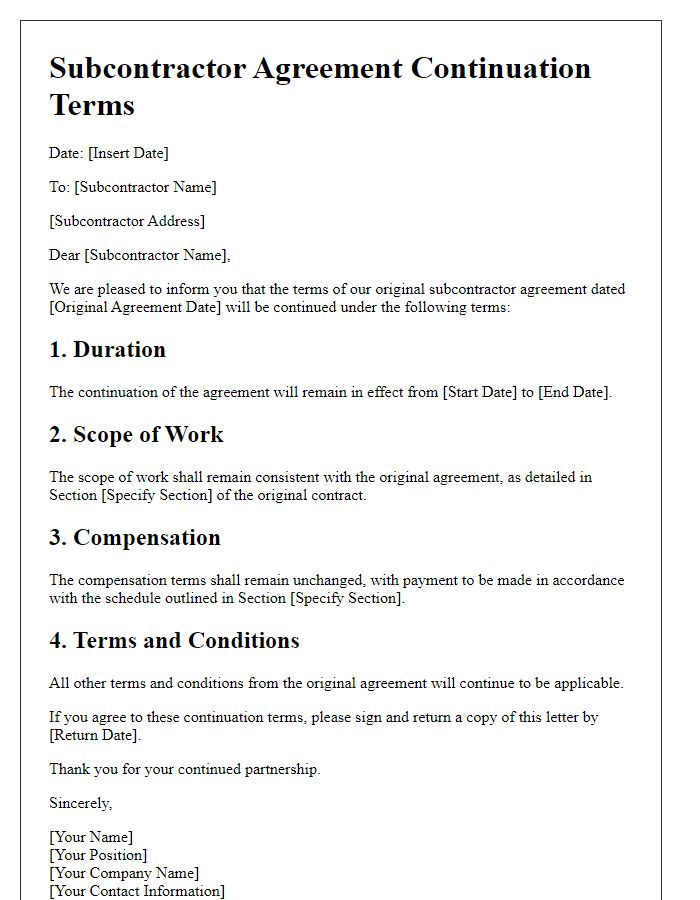
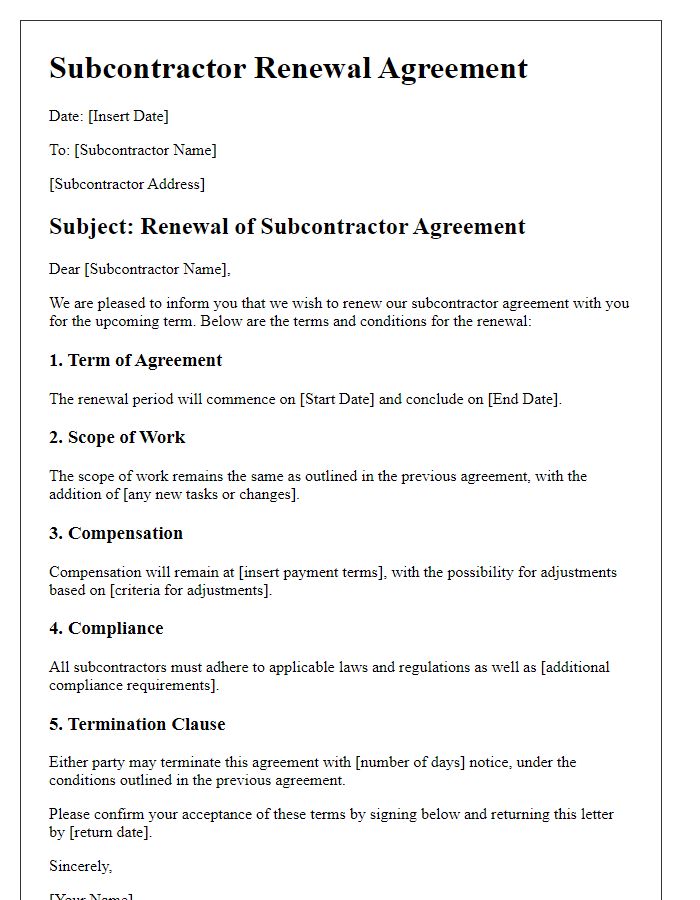
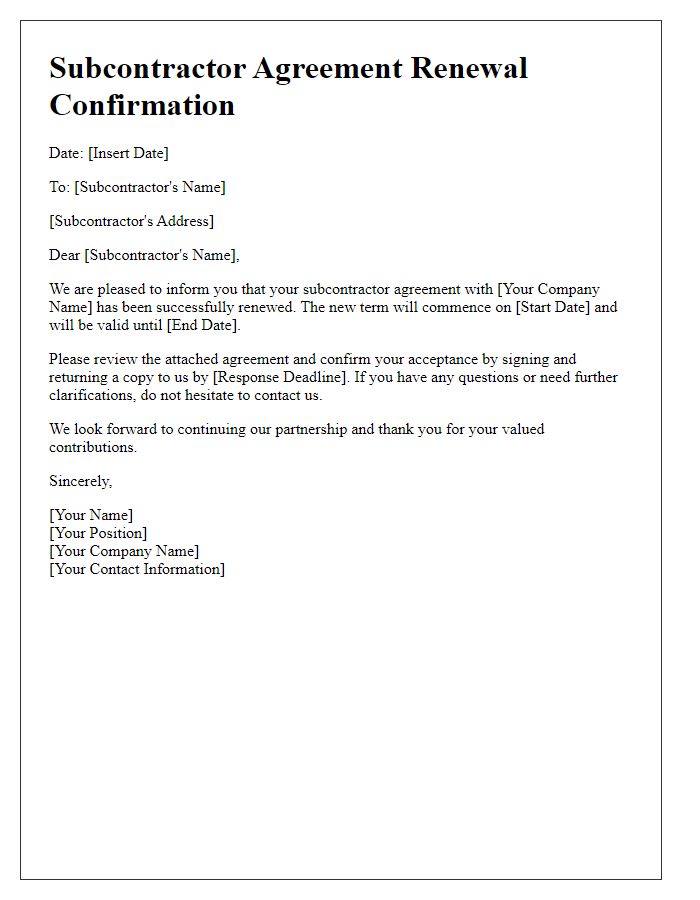
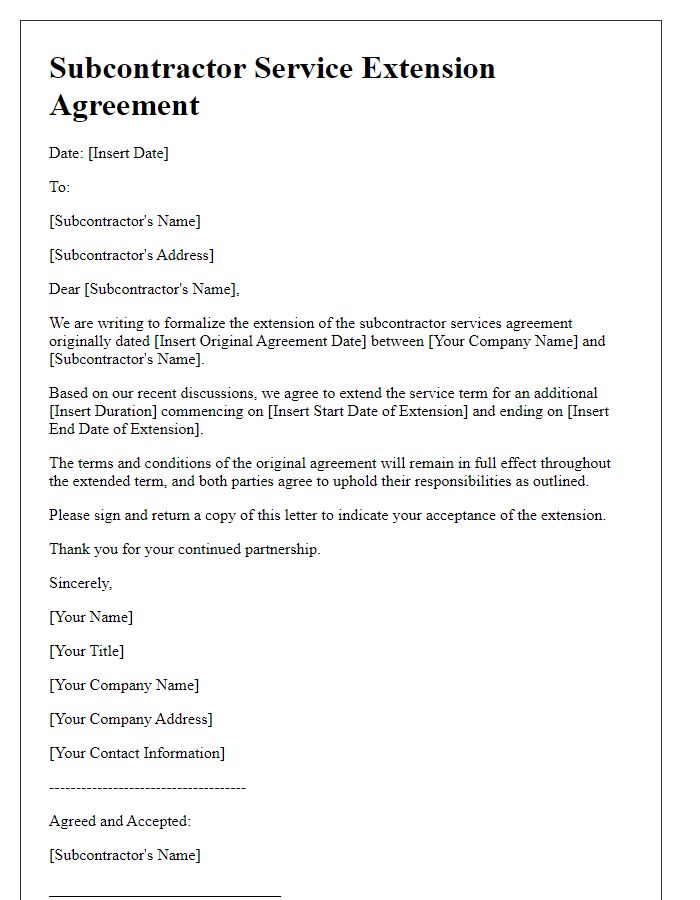
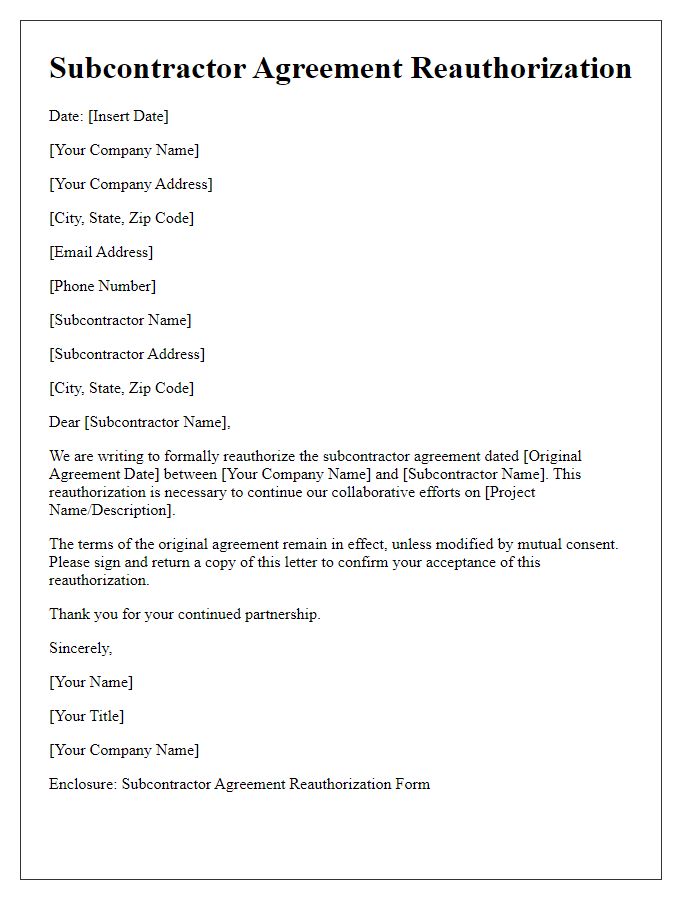
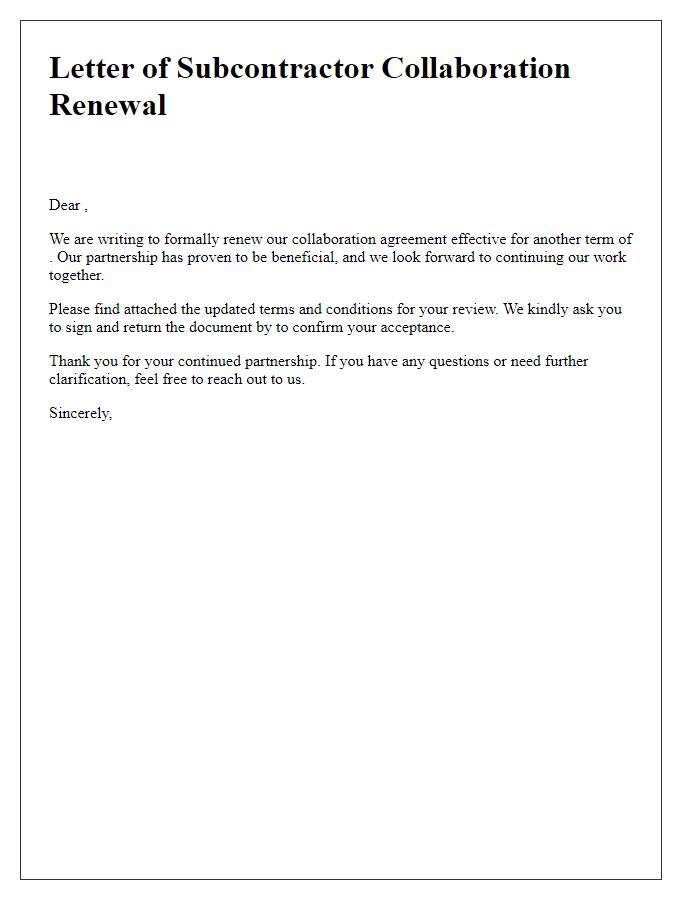
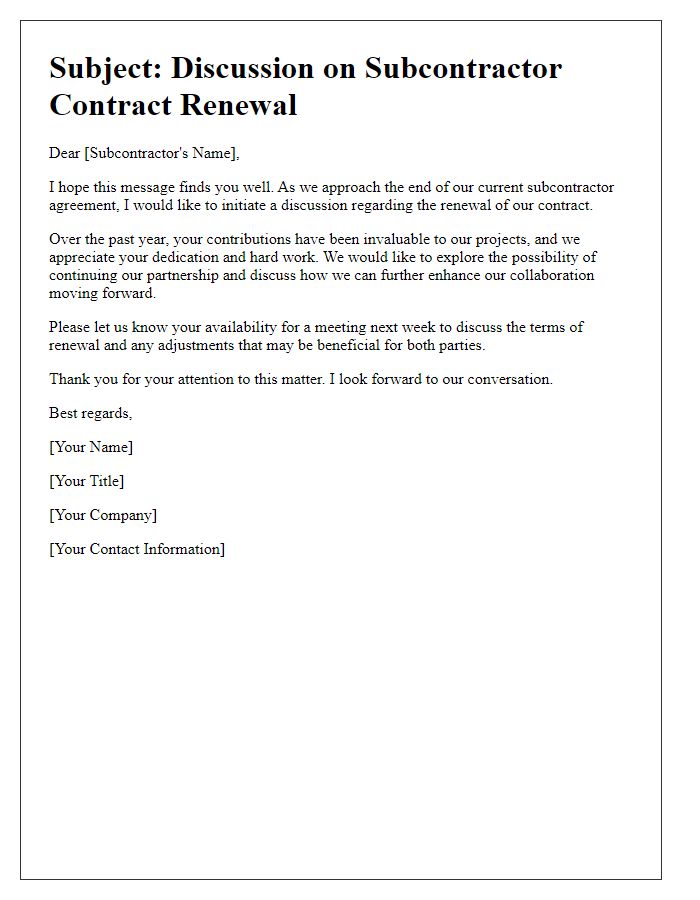


Comments